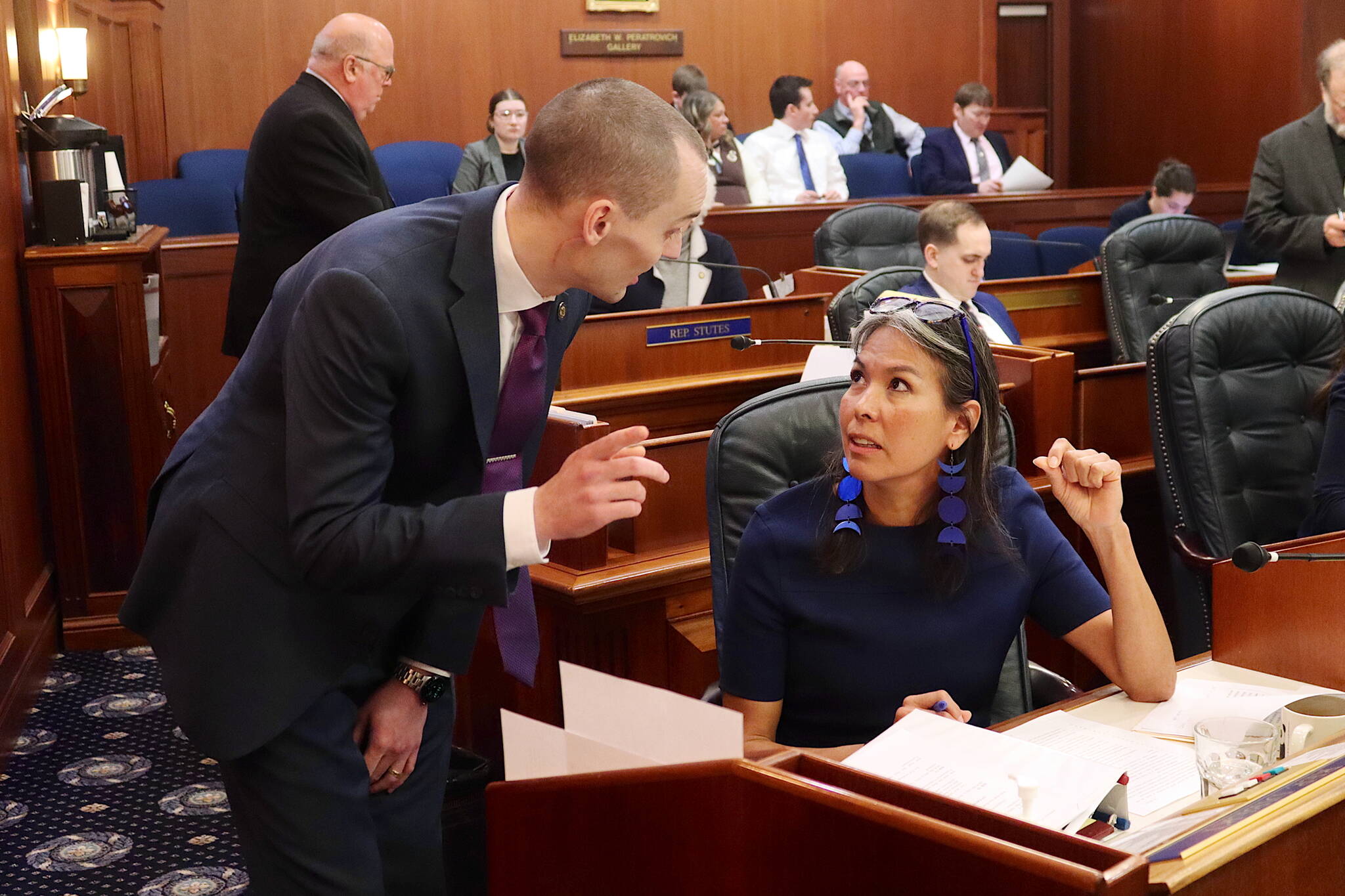Republicans in the Alaska House tried Monday to change a resolution objecting to the renaming of Denali to Mount McKinley into a lengthy list of lavish praise for President Donald Trump, who issued the executive order making the change on his first day back in office a week ago, but failed as the Democratic-led bipartisan majority defeated the effort by a 21-17 vote.
The resolution — the first floor vote on legislation by the House this session — subsequently passed by a 28-10 vote with all of the opposition votes coming from Republicans.
House Joint Resolution 4 by Maxine Dibert, a Fairbanks Democrat, is moot as worded since it urges “that action to rename the mountain not be taken.” The U.S. Department of Interior announced Friday the name change is now official and the U.S. Board on Geographic Names would begin making the change to federal documents and maps immediately.
But Dibert, who on Friday said passing the resolution is still a worthwhile gesture that may spur further action on the issue, used Monday’s floor session to provide a history of how the highest peak in North America has for thousands of years been known by the name bestowed by the Koyukon Athabaskan people.
“Denali is more than a mountain,” she said. “It’s a cornerstone of Alaska’s history, a tribute to our diverse culture and a testament to the people who have cherished this land for millennia. If the federal government moves to change the name it is an affront to our state sovereignty. To officially change the name not only dishonors those who have fought to protect the name Denali, but also dismisses the voices of the Native communities whose roots are intertwined with those of the state.”
The mountain was officially renamed Mount McKinley by the U.S. government from 1917 until 2015, then changed to Denali in 2015 during President Barack Obama’s second term. Trump vowed during his first term in 2017 to change the name and followed through after he was reelected.
An effort to essentially hijack the resolution was made in the amendment introduced by the 17 members of the minority caucus present during Monday’s floor session. The amendment sought to add to the original resolution 14 “whereas” clauses that essentially spell out various Trump executive orders in full — including 2½ pages dedicated to a single order “Unleashing Alaska’s Extraordinary Resource Potential” that lists 21 provisions — plus four “resolved” declarations offering various forms of praise to Trump and pledges to work on achieving his goals.
Rep. Kevin McCabe, a Big Lake Republican, said “some want it, some don’t” when it comes to Alaskans’ opinions about the name change, but “what really matters is I think we have larger fish to fry.”
“I think that we should agree that this order that President Trump put in is is a good idea,” McCabe said. “But I think the best idea to strengthen this resolution is adding in the other orders that President Trump put in, and seeking to congratulate him or at least tell him that we appreciate that. Perhaps that’s the best way to unite us and unite this resolution.”
A poll of 1,816 adult residents in Alaska published last week found 54% opposed changing the name, 26% supported it and 20% had no opinion. The Alaska Survey Research poll between Jan. 11-13 also found Trump voters favored the name change with 43% supporting, 37% opposing and 23% with no opinion. Voters supporting former Vice President Kamala Harris opposed the change with 7% supporting, 86% opposing and 7% with no opinion.
The vote on the amendment was along straight majority-minority caucus lines, with Republican minority caucus members Bill Elam of Nikiski and Will Stapp of Fairbanks excused from the session.
The vote on the resolution itself saw seven Republicans cross over in joining the majority caucus: George Rauscher of Sutton, Justin Ruffridge of Soldotna, Jeremy Bynum of Ketchikan, David Nelson of Anchorage, DeLena Johnson of Anchorage, Rebecca Schwanke of Glenallen and Minority Leader Mia Costello of Anchorage. While only a symbolic first vote, it could be an indicator later in the session who potential crossover votes may be if a three-fourths vote of the House is needed to pass the budget or a two-thirds vote for other matters such as veto overrides.
State websites as of Monday morning still referred to the mountain as Denali. Inquires to Gov. Mike Dunleavy’s office since Friday about whether he has issued a directive to change the name to McKinley did not receive a response by early Monday afternoon. Dunleavy, during a press conference last week, said he plans to talk to Trump next month before declaring if he is for or against the name change.
Dibert said one of her goals for the resolution was passing it before Dunleavy gives his State of the State speech to a joint session of the Legislature on Tuesday evening.
• Contact Mark Sabbatini at mark.sabbatini@juneauempire.com or (907) 957-2306.

